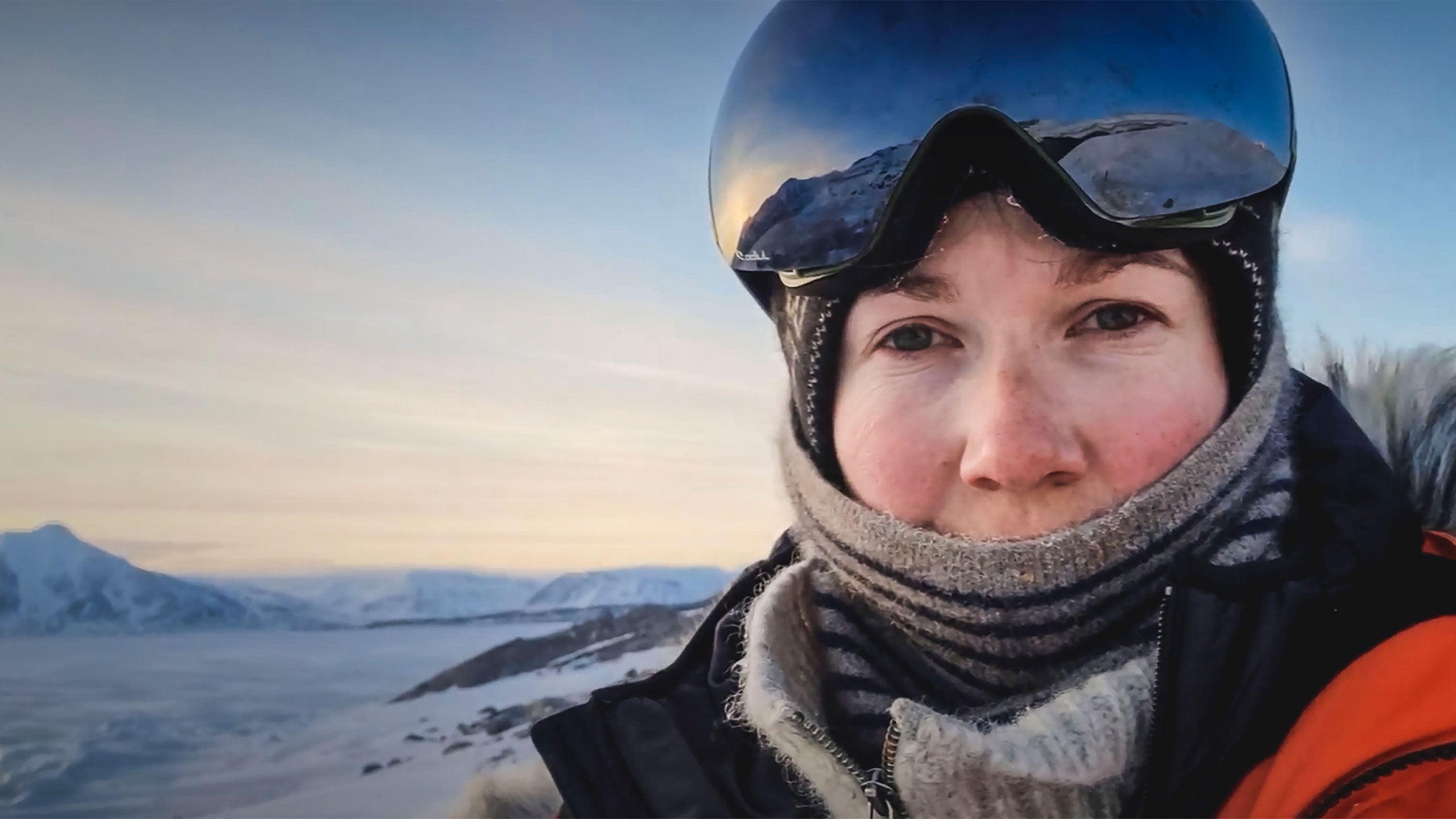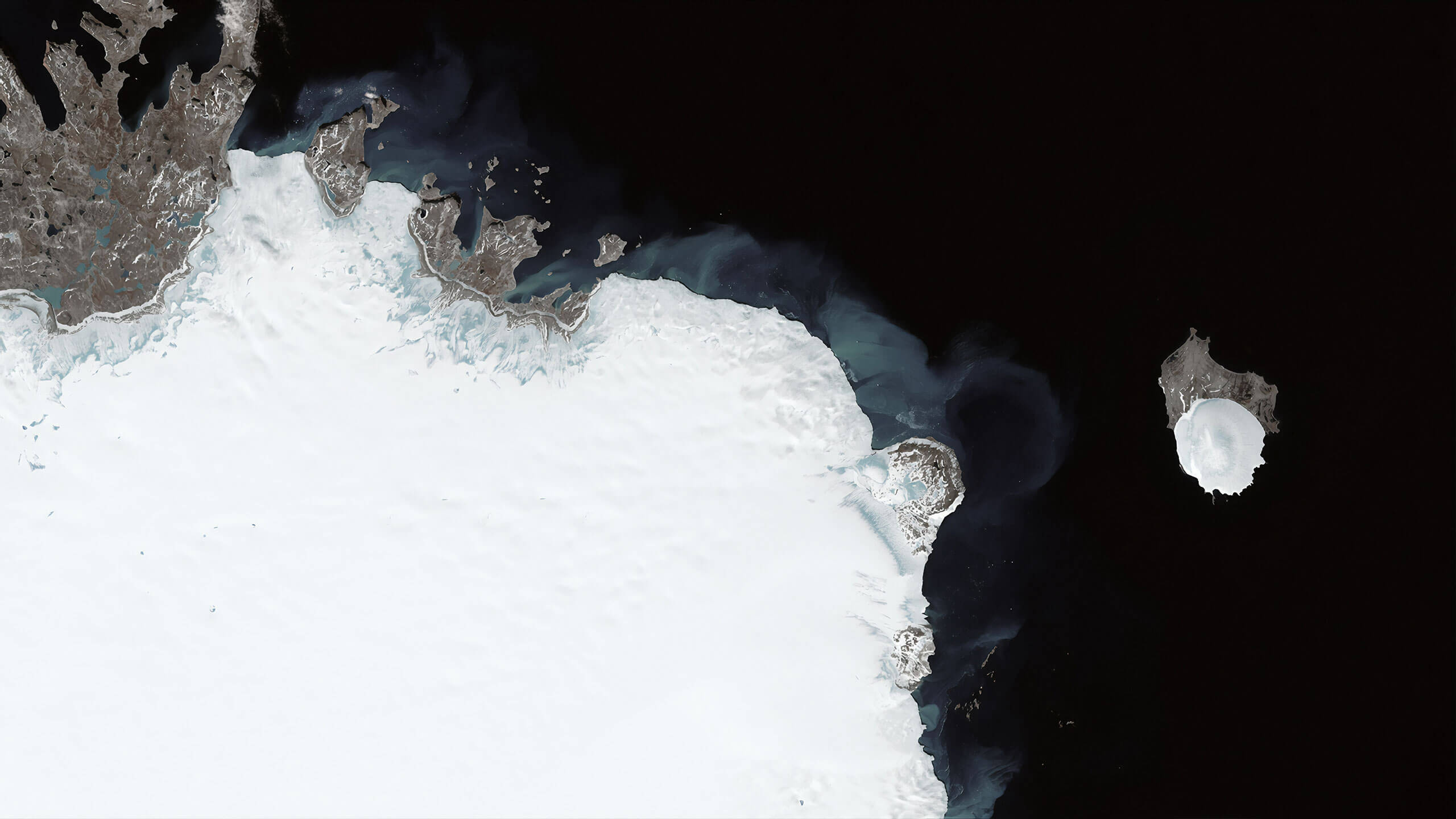
Shackleton Medal // The Winner
The winner of the inaugural Shackleton Medal for the Protection of the Polar Regions is Dr. Heïdi Sevestre, the pioneering climate activist, expedition leader, scientific researcher, documentary maker and lobbyist.

Dr. Sevestre receives a prize of £10,000 as a contribution towards her ongoing work in the polar regions and the very first Shackleton Medal.
Our international jury of polar experts - chaired by Prof. Lewis Dartnell – debated the shortlist and decided the winner at the Royal Geographical Society in London.
Among an exceptionally strong list, Dr. Sevestre stood out for the judges for the extraordinary courage she has demonstrated working in the field and her drive and determination to communicate her message. Raised amongst the diminishing glaciers of the French Alps, she has chosen to live her life on the frontline of climate change, working and studying in Svalbard, the Arctic archipelago where global warming is happening six times faster than the rest of the world. In Longyearbyen, the town where she is based, the impact of the receding permafrost pushes coffins to the surface while residential areas are, for the first time in history, prone to avalanches.

Last year, Dr. Sevestre led an all-female-scientist expedition, Climate Sentinels, to document the effect of the dramatic changes on snow and ice conditions. She has made it her mission to talk to everyone from schoolchildren to heads of state about how to tackle global warming and designed the expedition to be on skis so it was completely carbon neutral. Yet the team of six scientists found themselves battling winds of more than 140 km/h and violent blizzards – freak conditions for April. They needed to use all their ingenuity to stay alive, at one point burying themselves in the snow to protect themselves from a storm that approached them when they were high up on a plateau.
Dr. Sevestre is a rising star of the polar world. In the seven years since she obtained her PhD from the University of Oslo she has become a consultant for the Arctic Council, was Director of Outreach for the International Cryosphere Climate Initiative before her job at AMAP, the Arctic Monitoring and Assessment Programme, Working Group to the Arctic Council and has presented numerous scientific documentaries. The jury were particularly impressed with her achievements as an expedition leader in extreme environments, and her extensive outreach campaigns. These have involved giving talks at schools, at universities, on glaciers and even spinning icebergs, with audiences ranging from six-year-old children to CEOs and leading politicians. She is also passionate about the use of social media to educate the world, “I think scientists should be on TikTok, Snapchat, Twitter,’ she declares.
 Dr. Sevestre told us: “We have to continuously fight to connect people with what we study, with the magnitude of what is currently taking place. As a polar scientist you are really facing extreme environments on a day-to-day basis. Sadly I have lost colleagues in the polar regions who are trying to study these how quickly things are changing. The speed of the changes means conditions ‘are becoming more and more dangerous. When you read the news, you can either be depressed, give up…or you can use this energy, this rage to make a difference. It’s now, or never.”
Dr. Sevestre told us: “We have to continuously fight to connect people with what we study, with the magnitude of what is currently taking place. As a polar scientist you are really facing extreme environments on a day-to-day basis. Sadly I have lost colleagues in the polar regions who are trying to study these how quickly things are changing. The speed of the changes means conditions ‘are becoming more and more dangerous. When you read the news, you can either be depressed, give up…or you can use this energy, this rage to make a difference. It’s now, or never.”
Chair of the Judges, Professor Lewis Dartnell said: “Following an incredibly tough judging process, looking through the careers and impact of nine quite extraordinary humans, whose work is category leading in the protection of the polar regions, we arrived at a unanimous vote on Dr. Sevestre. Heïdi stood out for her fierce and uncompromising approach to driving change in the polar regions. She understands people and more importantly the emotional connection we all have with our planet. Her work in unlocking this passion in the world, combined with her frontline scientific research, make her the ideal candidate to inspire more individuals to prioritise the climate change fight.”

From unprecedented high temperatures to the dramatic collapse of long-standing ice shelves, barely a day goes past without the polar regions hitting the headlines. The time to tackle climate change and protect our polar regions is now, and Dr. Sevestre not only remains physically on the front line in her scientific research, but also as a driving force, with her proactive discourse with leaders across the world.
Founder of Shackleton, Martin Brooks, said: “I could not be more proud to award the very first Shackleton Medal to Dr. Heïdi Sevestre. Not only is she proactive in protecting the polar regions on the frontline with her groundbreaking research, but she demonstrates a courageous and Shackleton-esque spirit in driving proactive change through discourse and diplomacy, with leaders across the world. I’m quite simply in awe of her as a human. Her energy, intellect and what she does day-to-day. I hope she can inspire many more people to follow in her footsteps. Congratulations Heidi - our very first Shackleton Medal winner.”
Plans are underway preparing for the 2023 Shackleton Medal, with the event becoming an annual award in the global climate change calendar.
Watch the full interview with Dr. Sevestre below:


